Fellow Readers, welcome my friend and Mosaic Collection sister Deb Elkink, author of The Red Journal and The Third Grace. I’m looking forward to reading these beautifully written stories when my schedule slows down this fall.
*GIVEAWAY ALERT* Deb has generously offered an e-book copy of each of these stories to one commenter below, randomly drawn.
Hello, Deb! Could you tell us a bit about your writing journey?
My first officially “published” piece appeared in my elementary school yearbook—a poetic dirge on the assassination of JFK, ending pretentiously with “God’s will comes before a President’s.” I followed this stunning debut with a junior-high English assignment—a stream-of-consciousness story through the eyes of Adam on his awakening beside newly created Eve in the Garden. So even as a child, I tackled themes and styles way beyond my experience that I thought I knew something about—a Canadian prepubescent making a religious statement on the political leader of a global superpower, a pious preteen assuming romantic insight on biblical marriage.
What hubris! Yet I was only following my native-born inclinations; I knew by age nine I wanted to be a writer, and subsequent years filled with university, cattle ranching, homeschooling, and seminary—and loads of reading—have seemed only to fan into flame my proclivity for storytelling and theology.
But I was quite foggy on genre. As a reader, I might list favorite novels for you to judge me by (Chocolat by Joanne Harris, The Flying Inn by G.K. Chesterton, Turn of the Screw by Henry James), but they seem a conflicted tangle of romance, satire, gothic fiction. As a writer, I scored a dozen short pieces appearing in paying magazines while in my twenties—a mixed bag of YA fiction, devotional, autobio. Finally I got serious about a decade ago with a full-length manuscript that caught the attention of my first agent, who asked me what I considered to be my genre.
“Genre?” I chewed the end of my pencil. “Um . . . I guess it would be literary fiction?”
He quickly corrected me: “Oh no, my dear, literary fiction doesn’t sell. You write ‘contemporary women’s Christian fiction.’”
And so I labeled that first novel, and my second, and the short stories I was now entering into contests, as contemporary women’s Christian fiction. After all, being a contemporary Christian woman, I wanted to speak to my people. However, I was lying. I don’t write genre fiction and have never wished to; I write literary fiction with completely different rules.
So let me ask you: What book genre do you favor?
An amazing number of possibilities exist, starting with the broadest categories—Poetry, Drama, Nonfiction—and trailing down through many subsets. For example, guess the famous title belonging to this expanding list of descriptors I found online:
- Fiction
- Christian
- Biblical
- Romance
- Western
- Historical
- California Gold Rush
- Prostitution
(Answer: Redeeming Love by Francine Rivers)
Agents and publishers of genre fiction insist their novels follow the stringent guidelines of each classification and subdivision so as to properly position the title within the industry to find the right audience. For example, a romance must always end with true love; sci-fi dystopian satirical slipstream cyberpunk mind transfer combines aspects of . . . well, you get my drift.
As with publishers and agents, it’s all about audience for any writer, as well. We, too, want to know our stories are going to satisfy the tastes and expectations of the readers we’re targeting.
But literary fiction (LF) is a category totally separate from genre fiction (GF). What is the intrinsic difference between the two? Some critics claim that LF is uppity, intellectualized, belonging only to the classroom, and boring to boot, but that GF is real entertainment for real people. This is a reductionist opinion, surely like declaring that BBC movies are tedious and only Hollywood fits the bill.
So here’s my clarification:
- Literary fiction focuses on character development and theme and is often embedded with symbolism and metaphor (with a great plot thrown in, but secondarily). Readers of LF look for subtext to the story, root out its meaning, and take their time to soak in the artsy tone, lush imagery, and painstaking verbiage of the story, knowing there’s more than meets the eye.
- Genre fiction, with its mainstream, populist feel, gives first attention to entertainment through plot (adding in elements of theme and character for solid value). Readers of GF demand a concrete storyline with dynamic pacing and tense action points to keep the pages flipping; they aren’t tolerant of leisurely descriptions or drawn-out explanations of, say, a character’s angst that only break into the plot action.
Good LF employs GF traits and vice versa. I would say that Rivers’s Redeeming Love is genre fiction packed with great literary devices—a merging of plot and character, action and meaning, head and heart, but genre fiction all the same.
So now that I’ve confessed I’m not a GF author—what relief!—I can happily plug away at writing literary fiction with a theological twist while learning plot techniques through keeping an eye on genre fiction.
I’d invite you to read my first two literary novels:
- The Third Grace: The past casts a long shadow—especially when it points to a woman’s first love . . . Will her dual journey across oceans and time in her search for self satisfy her cravings? https://amzn.to/3vcTWrb
- The Red Journal: A child’s antique ring and a message from beyond the grave point to the treasure of a legacy lost and result in a quest for the meaning of heritage and home. https://amzn.to/3vcUcGF
Watch for my upcoming short story collection with the working title Vagabond Come Home.
Connect with me online:
- Website http://www.debelkink.com
- Facebook https://www.facebook.com/deb.elkink/
- Retelling Timeless Truths: Join my FB street team https://bit.ly/3fHVfrR
- Amazon https://amzn.to/3u8o31S
- Newsletter with fun giveaways https://bit.ly/3ytA8lA
- BookBub https://bit.ly/3vi5n0Y
- GoodReads https://bit.ly/3v7pWgx
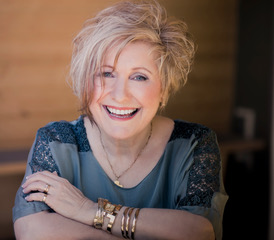 Deb Elkink writes from her cottage on the banks of a lovely creek in the rolling hills of southern Alberta, Canada, a stone’s throw from the Montana border and home base for international adventures. Her award-winning novels and short stories—literary fiction with a theological twist—incorporate travel and tastebuds and tumults of the heart.
Deb Elkink writes from her cottage on the banks of a lovely creek in the rolling hills of southern Alberta, Canada, a stone’s throw from the Montana border and home base for international adventures. Her award-winning novels and short stories—literary fiction with a theological twist—incorporate travel and tastebuds and tumults of the heart.
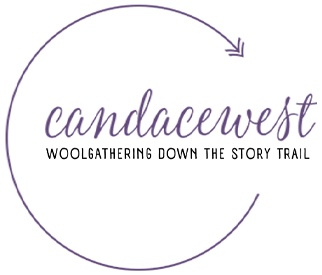
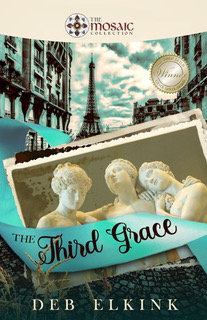
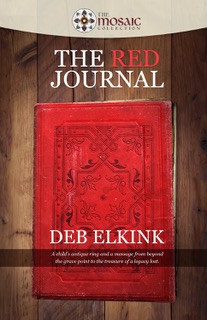
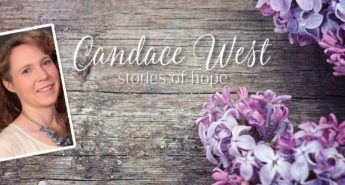
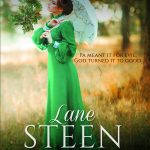
I loved this interview! My love for Deb Elkink’s work makes so much sense now. When reading it, I’m reminded of my college days reminding me of the likes of the early American Lit crowd…Steinbeck, Auden, Thoreau. Or more recently, of George McDonald’s novels. And I often remember some of the scenes from Deb’s stories as though they are out of those non-Hollywood-type movies…the real films that are dramatic and often based on novels that don’t follow the “formula”…the ones that leave you with a memory of a character or a poignant moment, like “Chocolat”. I am always hungry for her next novel.
Hi Maggie! One of my favorite parts of college was studying American and British Lit. I have a feeling I would love her stories, and I can’t wait until I have more reading time later this year. I’m glad you stopped by!
Maggie, I really appreciate your appreciation! Sometimes it’s hard to locate my readers, and writing up the definition for myself gives even me a clearer focus. I do keep the older British writers and current literary authors in view—well, they’re kind of in my heart naturally. Thanks for being this kind of reader!
What a fantastic interview and discussion of the genre issue so many of us independently published authors encounter. I for one have benefited in my own journey from this interview.
Thank you.
Thanks so much for reading and commenting. Yes, this really is an issue that affects indie authors–and often (I suspect) the reason for becoming indie. Hurray, creativity!
Sound authentically you!
Thanks so much for reading and commenting. Yes, this really is an issue that affects indie authors–and often (I suspect) the reason for becoming indie. Hurray, creativity!
Oops, sorry, Terry–I seem to have answered another commenter and accidentally posted on your spot . . . So now, to you–thanks for the comment. You affirm creativity at the personal level and it means so much when I consider how deeply artistic you are and how broadly you have expressed this over your life (from the moment we met in college through your excellent career in the arts).
I’m glad that you are more of a LF writer. I love all the description and character development and your knowledge of foreign places as you paint descriptive pictures of places, people and food.
Rosemarie, you are a very encouraging friend for a writer to have–thank you! I know several writers who are very broad in their approach and can (and do, sometimes with pen names) write in a variety of genres. Amazing to me! We each take and do with what we have–and it’s wonderful to find readers who “get” us. : )
I had to chuckle when I read the clarification of the “genre” issue. Yesterday my daughter and 10 yr. old grandson took me to a botanical garden for my birthday. He asked me what” genre” of games (he was referring to computer games) I prefer! I told him that I actually prefer to read (prefer historical fiction) or create with my hands (knit, sew, crochet, garden, etc.) and don’t play computer games. He’s pretty smart, but I think we’d lose him with the details of this one!!
Anne-Marie, what a great story. Timely discussions all around.
Wonderful interview with Deb! Literary fiction with a Theological Twist sounds like my kind of “genre”!
Hi Caryl, and thanks for the comment. We writers all need to find our audiences, and it’s wonderful to meet someone who might become part of mine.
I appreciate your definition of LF. I did not realize my preference for fiction that uses character development is actually a preference for a particular genre. My high school English Lit teacher made sure her students looked for character development, and I often hear Tina Kehler’s questions when I read a book or watch a movie. I also make mental notes of foreshadowing, and consciously or subconsciously evaluate plot development.
Ah Pat, that’s because you are a writer–this making of mental notes and reading for meaning. I so wish I could write all the stories in my mind and imagination, but I am very, very slow at production (something my more prolific genre-writing friends say is typical with literary fiction writers). I learn something EVERY time I write a short story or longer piece, and I despair of ever producing enough to call a “body” of work (I’m getting old!). But we only do what we can with what we’ve got and must be satisfied at the end of the day, I suppose. Thanks for chiming in.
Good morning, all! The winners of this giveaway are Caryl Kane and K.L. Ditmars. I’ll send a PM soon. If you’ve already read these and would like to gift them to a friend instead, please let me know. The Third Grace goes to Caryl and The Red Journal goes to K.L. Ditmars. Thank you for participating!
HOORAY and congrats to Caryl and K.L.! So excited to know my novels will go to happy readers. THANK YOU ALL for your participation in my interview.